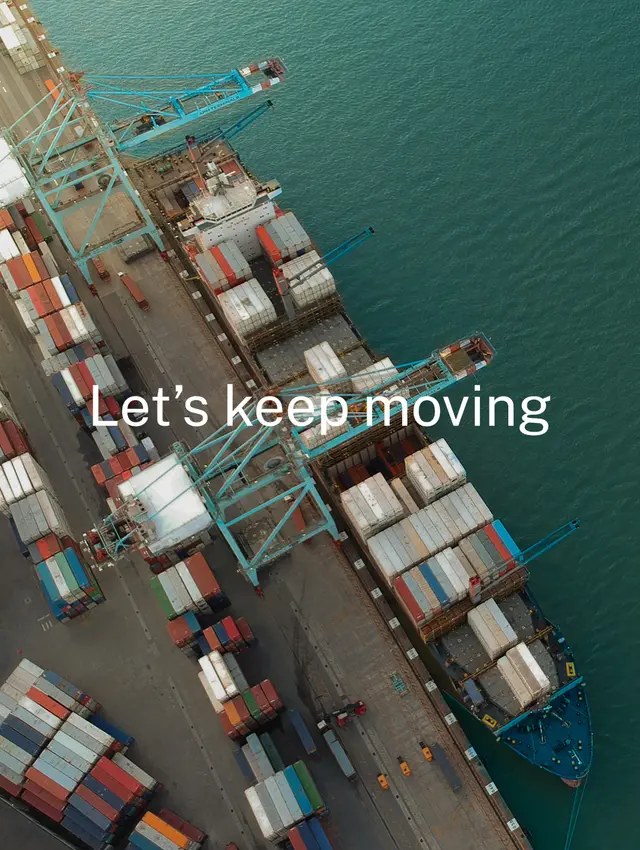search
Value Chain & Suppliers
Our dedication to maintaining a sustainable supply chain starts with honesty and transparency. Long-term partnerships
At Viking, we value the long-term partnerships we have with our suppliers. We actively seek like-minded partners and believe that great things can happen when people join together to pursue a common purpose. As of 2021, 77% of our partner collaborations are over 10 years old, and 33% of our partner collaborations have been in place for a period of 30 years or longer.
Viking has worked with open supplier lists since 2016. The collaboration between Viking and our suppliers is based on transparency and close communication. Here we can address challenges and opportunities in the value chain. You can see our 1-tier value chain here.
Value Chain & Suppliers
Our dedication to maintaining a sustainable supply chain starts with honesty and transparency. Long-term partnerships
At Viking, we value the long-term partnerships we have with our suppliers. We actively seek like-minded partners and believe that great things can happen when people join together to pursue a common purpose. As of 2021, 77% of our partner collaborations are over 10 years old, and 33% of our partner collaborations have been in place for a period of 30 years or longer.
Viking has worked with open supplier lists since 2016. The collaboration between Viking and our suppliers is based on transparency and close communication. Here we can address challenges and opportunities in the value chain. You can see our 1-tier value chain here.
Due diligence assessments
As a part of our commitment to maintaining a sustainable supply chain, we started working actively with due diligence assessments in 2022. Through annual assessments, Viking maps the risk of negative impact on humanity, animals, society and environment in our value chain.
Through our membership in Ethical Trade Norway, we have made a commitment to conduct due diligence assessments based on the UN’s Guiding Principles for Business and Human Rights (UNGP) and the OECD’s guidelines for responsible business practices. The method for due diligence assessments consists of six steps that describe how we as a company should work for more sustainable business practices.

If Viking sees that there is a risk of events happening that have a negative impact in our value chain, we have a responsibility to try to stop, reduce or prevent this. The measures we initiate must be monitored and assessed for their effect and communicated to those affected. If our activities cause or contribute to a negative impact on people, society or the environment, we will stop this activity, and we will seek to restore the damage. Through our ethical guidelines for suppliers, we demand that our suppliers and partners follow the same approach.
You can see our policy for responsible business practices here
You can see our ethical guidelines for suppliers here
You can see our action plan for the risk areas we have mapped here
Viking’s policy for responsible business practices for its own operations is anchored in the management and signed by the general manager and chairman jointly. The work on due diligence assessments is currently organized under product, but from autumn 2023 it will be organized under purchasing and sourcing.
Our country office in Vietnam is operationally responsible for the implementation of our annual BSCI audits and non-conformance management, as well as follow-up of the risk areas we have mapped in the action plan. Viking’s strategies and plans for sustainable business practices are followed up through meetings throughout the year, as well as short lines of command between those operationally responsible and the general manager.
Due diligence assessments
As a part of our commitment to maintaining a sustainable supply chain, we started working actively with due diligence assessments in 2022. Through annual assessments, Viking maps the risk of negative impact on humanity, animals, society and environment in our value chain.
Through our membership in Ethical Trade Norway, we have made a commitment to conduct due diligence assessments based on the UN’s Guiding Principles for Business and Human Rights (UNGP) and the OECD’s guidelines for responsible business practices. The method for due diligence assessments consists of six steps that describe how we as a company should work for more sustainable business practices.

If Viking sees that there is a risk of events happening that have a negative impact in our value chain, we have a responsibility to try to stop, reduce or prevent this. The measures we initiate must be monitored and assessed for their effect and communicated to those affected. If our activities cause or contribute to a negative impact on people, society or the environment, we will stop this activity, and we will seek to restore the damage. Through our ethical guidelines for suppliers, we demand that our suppliers and partners follow the same approach.
You can see our policy for responsible business practices here
You can see our ethical guidelines for suppliers here
You can see our action plan for the risk areas we have mapped here
Viking’s policy for responsible business practices for its own operations is anchored in the management and signed by the general manager and chairman jointly. The work on due diligence assessments is currently organized under product, but from autumn 2023 it will be organized under purchasing and sourcing.
Our country office in Vietnam is operationally responsible for the implementation of our annual BSCI audits and non-conformance management, as well as follow-up of the risk areas we have mapped in the action plan. Viking’s strategies and plans for sustainable business practices are followed up through meetings throughout the year, as well as short lines of command between those operationally responsible and the general manager.
BSCI Audits
Since 2003, amfori BSCI has empowered companies to improve their social performance within their supply chains and create meaningful and impactful change. At Viking, we initiate annual BSCI audits at our manufacturing facilities.
BSCI audits at Viking manufacturing facilities address the following topics, which include Viking’s Code of Conduct, as well as internationally recognized conventions (UN and ILO)
Responsible Social Management Systems
The Involvement and Protection of Workers
The Freedom of Association and Collective Bargaining
Discrimination Free Workplace
Fair Remuneration
Decent Working Hours
Occupational Health and Safety
Ban of the use of Child Labour
Special Protection for Young Workers.
Ethical Employment Standards
Ban of the use of Bonded Labour
Protection of the Environment
BSCI Audits
Since 2003, amfori BSCI has empowered companies to improve their social performance within their supply chains and create meaningful and impactful change. At Viking, we initiate annual BSCI audits at our manufacturing facilities.
BSCI audits at Viking manufacturing facilities address the following topics, which include Viking’s Code of Conduct, as well as internationally recognized conventions (UN and ILO)
Responsible Social Management Systems
The Involvement and Protection of Workers
The Freedom of Association and Collective Bargaining
Discrimination Free Workplace
Fair Remuneration
Decent Working Hours
Occupational Health and Safety
Ban of the use of Child Labour
Special Protection for Young Workers.
Ethical Employment Standards
Ban of the use of Bonded Labour
Protection of the Environment
Ethical Trade Norway
Viking has been a member of Ethical Trade Norway since 2007. Through our membership, we have made a commitment to work actively with responsible and sustainable business practices in line with EHN’s principles, which address working conditions, human rights, environmental protection, anti-corruption and animal welfare. We also commit to conduct due diligence assessments and report on our work, progress and challenges related to ethical trade.
As a member, we receive counseling in our work to map, prevent and limit any negative consequences in Viking’s value chain. Ethical Trade Norway also offers courses and resources for increased competence, as well as an overview of upcoming regulations to meet society’s expectations for sustainability and responsible business. Through our membership we also get to connect and work with other businesses for a more sustainable industry and about the challenges we face in our work.
Ethical Trade Norway
Viking has been a member of Ethical Trade Norway since 2007. Through our membership, we have made a commitment to work actively with responsible and sustainable business practices in line with EHN’s principles, which address working conditions, human rights, environmental protection, anti-corruption and animal welfare. We also commit to conduct due diligence assessments and report on our work, progress and challenges related to ethical trade.
As a member, we receive counseling in our work to map, prevent and limit any negative consequences in Viking’s value chain. Ethical Trade Norway also offers courses and resources for increased competence, as well as an overview of upcoming regulations to meet society’s expectations for sustainability and responsible business. Through our membership we also get to connect and work with other businesses for a more sustainable industry and about the challenges we face in our work.
Do you have any questions about the Transparency Act?
The purpose of the Transparency Act is to promote businesses’ respect for fundamental human rights and decent working conditions in connection with the production of goods and services. The law ensures transparency about supply chains and requires companies such as Viking to conduct and publicly report on our due diligence assessments. We started publishing our due diligence assessments in 2022. You can find an overview of all our suppliers here and read our due diligence assessments here.
If you can’t find the information you are looking for on our online page or in our reports, you are welcome to contact us at viking@vikingfootwear.com.
Do you have any questions about the Transparency Act?
The purpose of the Transparency Act is to promote businesses’ respect for fundamental human rights and decent working conditions in connection with the production of goods and services. The law ensures transparency about supply chains and requires companies such as Viking to conduct and publicly report on our due diligence assessments. We started publishing our due diligence assessments in 2022. You can find an overview of all our suppliers here and read our due diligence assessments here.
If you can’t find the information you are looking for on our online page or in our reports, you are welcome to contact us at viking@vikingfootwear.com.



